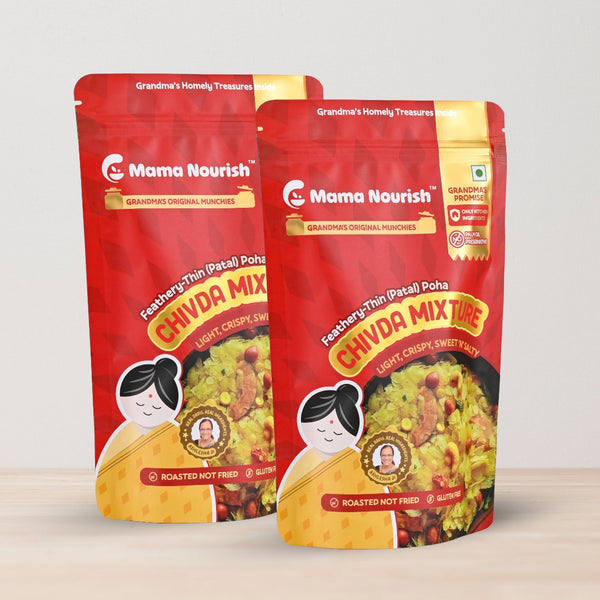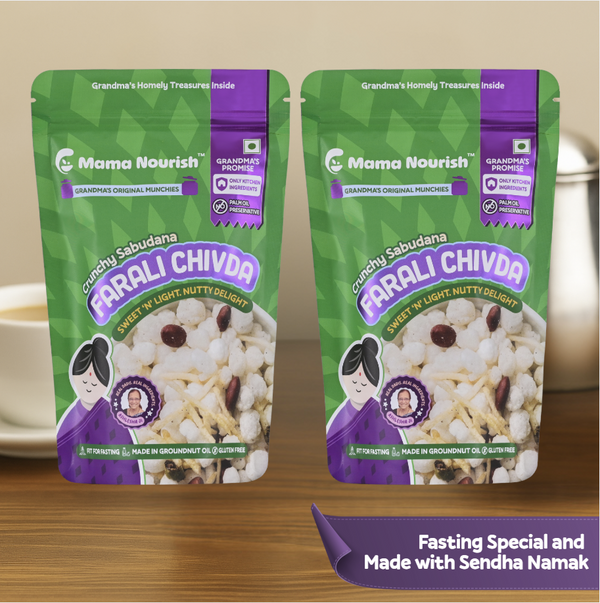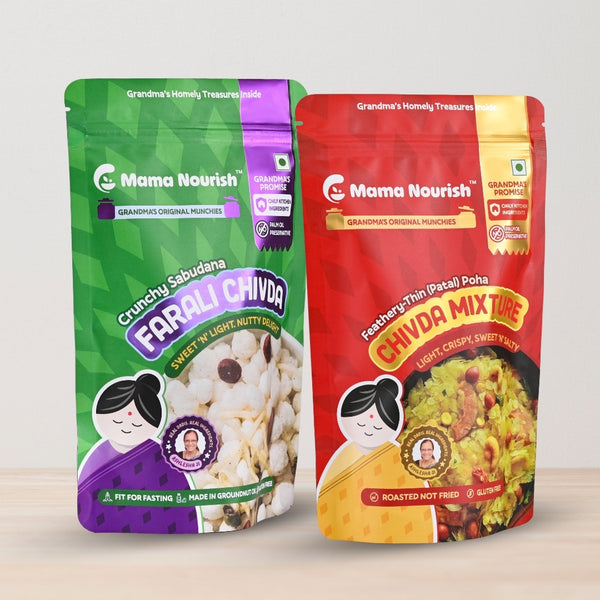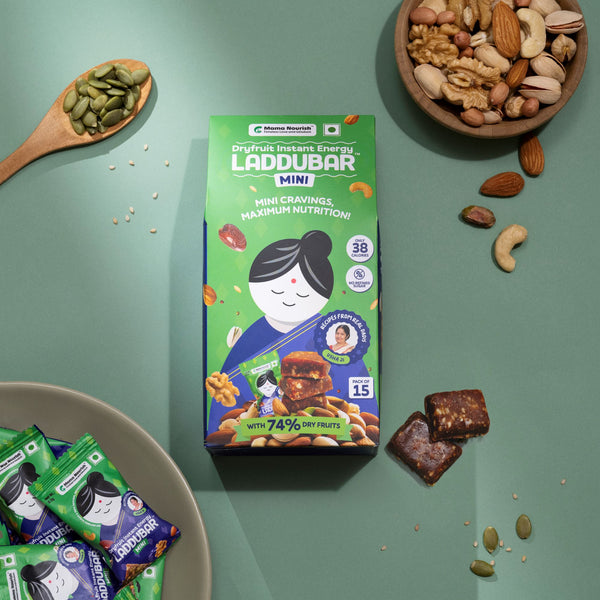
Gain Happiness, Not Extra Pounds: 9 Tips for Healthy Festive Eating!
The dazzling lights, cheerful chatters, laughter, much-awaited gifts, the aroma of delicious festive feasts, and colourful mithai boxes— you are in a daze indulging in the festive cheer. But, once the parties are over, you enter panic mode, fretting over the extra pounds gained amidst the celebrations.
Then, your aggressive dieting and workout plan begins to get back in shape—that you took months to attain before the holidays.
However, following some small healthy holiday tips that can help you avoid this aggressive sweating right after the festive season.

Here are 9 tips for healthy holiday eating during the festivities.
1. Eat a Wholesome Breakfast
Having breakfast is a must for healthy holiday eating. You may be too busy with party preparations, but for a healthy festive eating – the breakfast and brunch shouldn’t be missed.
You can plan easy breakfasts for busy festive days in advance to avoid hustle. The best options are going for traditional Indian recipes like poha, dosa and chutney, idli and Sambhar. Fermented foods like Dosa and idli are easy to digest and good for the gut, making them part of healthy eating during festive season is good for overall well-being.
You can also try oats with fruits, berries and nuts mixed or wipe up an easy fruit chat–which is nutritious and delicious fuel up.
Don't forget to garnish the dishes with nuts to bring out the festive flavours. Plan healthy holiday eating during the festive season by making healthy desserts at home instead of relying on store-bought sweets.

2. Don't Go to Parties on an Empty Stomach
Festive days can be tightly packed but rushing to party with an empty stomach is an open invitation for overeating.
So, before you head out, have some pre-party snacks like fruits. Hence, the urge to overeat can be avoided. Even though portion control is the key to healthy holiday eating, it's nearly impossible to achieve when you turn up with an empty tummy and need to fuel up for the party vibes.
3. Eat Slowly
Does your eating speed matter in weight management?--Yes, it does. Have you heard that it takes about 20 minutes for the brain to send the message that you are full?
The fact is, when we eat, the stomach and intestines release hormones like ghrelin (hunger hormone) and leptin (satiety hormone). It's this Leptin which tells your brain that you're full and should stop eating. However, this process takes time. It usually takes around 20 minutes for these signals to travel to the brain and be interpreted–hence, if you keep eating at a faster rate you will end up eating too much.
So, after each helping pause and give enough time for the brain to tell whether you are full. This, in fact, will keep you more aware of how much and what is going into your stomach—making mindful eating during festivals and portion control possible.
Moreover, slow eating gives you the time to appreciate the festive vibes and people around you–making celebrations a more immersive experience.
Those flickering lights, the sound of crackers, happiness of catching up and sharing food with family and friends—all become more meaningful offering a profound getaway from regular work days. A healthy holiday tip is also about cherishing the moments as well.

4. Portion Control
Portion control is one aspect that can not be ignored. Advance planning about how much you are gonna eat is handy to keep each helping in check. You can add small portions of diverse foods to your plate instead of binging on a whole pack of sugary barfis or kaju katli in one go.
Making your plate filled with small helpings of vegetables, lean proteins, whole grains, healthy fats and carbs–provides not only a filling meal but also balanced nutrition. This method will ensure you're practicing thoughtful healthy holiday eating.
Another practical way you can employ is–to use a smaller plate to trick your brain. If you are dining out ask for half helpings.
5. Move Around
Don't slack during the festive season—follow your regular exercise routine.
Staying active is important to enjoy the festivities to the fullest and to keep calories in check. Walking and dancing during festivals burn out extra calories and aid in digestion. Additionally, being active physically helps to keep your stress in check–yes, with lots of chores, shopping, cooking, organizing parties, the festive season can be stressful.
Additionally walking helps to manage blood sugar. In fact, studies have shown that a 20 minutes of walk after a meal, can significantly reduce post-meal blood sugar spikes. Keep in mind that this effect is more pronounced when exercise occurs shortly after eating rather than after a long wait or before the meal.
Managing blood sugar helps to lower the risk of inflammation-related diseases and cardiovascular conditions. A hearty walk on a festive day is good for the heart.
6. Stay Hydrated
With so many beverages, from soft drinks to chai to alcohol, filling the party table– Drinking sufficient water is something often forgotten.
But, staying hydrated is very important, especially amidst the celebrations. If you are hydrated enough, it prevents being hungry —hence, helps not to go overboard with feasting. Additionally, the water keeps you energized, helps you get over the hangovers, and aids in digestion and metabolism. Plus, water keeps you cool on sweltering October days.
On top of it, with enough hydration, your skin will look better–a healthy holiday tip for glowing enough for those festive clicks and perfect Insta moments!

7. Add Fibre-rich Foods
Adding fibre-rich foods to your festive feast can enhance digestion and balance out the rich, indulgent dishes typically served. So, add fibre-rich foods to your list for healthy eating during the festive season.
Here are some ways to add fibre to your festive feast-
1. Leafy Greens
You can add spinach and fenugreek leaves (methi) into spreads and dishes like palak paneer or methi paratha.
2. Bean and Veggie Salads
Prepare a colourful mixed bean salad with black beans, kidney beans, and chickpeas. Add vegetables like carrots, broccoli and a zesty lemon dressing for a refreshing side.
3. Fiber-Filled Raitas
Mix grated carrots or cucumber into your yoghurt to create raitas, enhancing the fibre content while keeping the dish light and cooling.
4. Whole grains
Use whole wheat flour for chapatis or rotis, and opt for brown rice or quinoa in place of white rice.
5. Legumes and pulses
Serve lentil-based dishes like dal, chole (chickpeas), or rajma (kidney beans), which are packed with fibre.
4. Millet based recipes
Millets are a good source of fibre; you can make millet-based recipes like millet laddu, dosa, kheer etc.
5. Fruits
Fruits like guava, pomegranates, banana, and kiwi and berries like raspberries, Strawberries, and blueberries are good sources of fibre.
6. Dried Fruits, Nuts and Seeds
You can make dry fruit laddus or energy balls using dates, figs, almonds and walnuts. These are natural sources of fibre. Other sources of fibre include pistachios, flaxseeds, and chia seeds.

8. Avoid Sugary Drinks
Sugary drinks like sodas, juices, and cocktails often contain a lot of calories but no nutritional value. The instant energy offered by sugar drinks only causes a crash in energy levels later. So, go for whole fruits instead of juices and drink enough water. Cutting down chai is also advisable. Drinking too many sugary drinks also makes it difficult to keep track of sugar intake.
9. Go for Homemade Sweets without Refined Sugar
Finally—homemade sweets are the best. Cooking at home gives you complete control over what goes into your stomach. In fact, most of our traditional recipes are really nutritious and the best part is most of them can be made without adding unhealthy refined sugar. You can use natural and nutritious sweeteners like dates, honey or Jaggery.
But, if you are too pressed for time—rushing from the office, too tired and waking up with groggy eyes, well, try buying sweets that contain healthy kitchen ingredients and are not sweetened with refined sugar.
To sum it up, to follow mindful eating during festivals, plan your festive day menu and implement the small steps mentioned above. Keeping your fitness even in the festive season is possible–so just enjoy the festive fervour without worrying about gaining extra pounds!
Note: The article is provided for informational purposes only and consult a healthcare professional if you are making major dietary changes.





